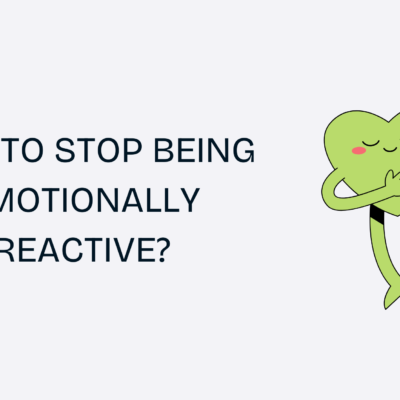How to Stop Constant Worrying and Overthinking: Worrying and overthinking are habits that many of us struggle with, often without realizing how much they affect our mental and physical well-being. These behaviors can stem from a variety of sources: fear of the unknown, past traumas, or even a need for control. While occasional worrying is a normal part of life, constant overthinking can lead to stress, anxiety, and a diminished quality of life. The good news is that with intentional strategies and consistent practice, it is possible to break free from the cycle of overthinking and regain a sense of calm. In this article, we will explore practical steps to help you stop constant worrying and overthinking.
Also Read:
Understanding Why We Overthink
Before tackling overthinking, it’s essential to understand why it happens. Overthinking is often rooted in one or more of the following:
- Fear of Failure: People tend to overanalyze situations when they fear making the wrong decision.
- Perfectionism: The desire to control every outcome can lead to endless rumination.
- Past Experiences: Traumatic events or mistakes can make us overly cautious.
- Anxiety: Generalized anxiety disorder or situational anxiety can fuel overthinking tendencies.
Understanding the cause can help you address the issue more effectively and choose techniques that resonate with your specific triggers.
The Impact of Overthinking on Your Life
Overthinking doesn’t just impact your mental health; it affects every aspect of your life. Here are some common consequences:
- Increased Stress Levels: Overthinking keeps your mind in a constant state of tension.
- Reduced Productivity: Instead of taking action, you spend too much time analyzing what could go wrong.
- Strained Relationships: Overanalyzing your interactions can create unnecessary misunderstandings and distance.
- Sleep Problems: Worrying late into the night can lead to insomnia or poor-quality sleep.
Recognizing these consequences can motivate you to make changes and prioritize your mental health.
1. Shift Your Perspective
One of the most effective ways to stop overthinking is to reframe your thoughts. Instead of focusing on what could go wrong, try shifting your perspective to:
- What could go right?
- What is the worst-case scenario, and can I handle it?
- What is the best decision I can make with the information I have now?
By consciously redirecting your thoughts, you can reduce the negative loop of worry and focus on solutions instead.
2. Practice Mindfulness
Mindfulness is a powerful tool for combating overthinking. By bringing your attention to the present moment, you can break free from the cycle of worrying about the past or future.
- Meditation: Spend 5-10 minutes daily practicing mindfulness meditation. Focus on your breath and let go of intrusive thoughts.
- Grounding Techniques: Engage your senses by noticing five things you can see, four you can touch, three you can hear, two you can smell, and one you can taste.
- Journaling: Write down your worries and analyze them. Often, seeing your thoughts on paper can help you gain perspective.
3. Set Time Limits for Worrying
It may sound counterintuitive, but allocating specific “worry time” can help you control overthinking. Here’s how:
- Set aside 15-20 minutes each day to think about your concerns.
- During this time, write down your worries without judgment.
- Once the time is up, redirect your focus to other activities and avoid revisiting those thoughts until the next worry session.
This method prevents worry from spilling into the rest of your day.
4. Take Action
Overthinking often paralyzes us into inaction. Taking small, decisive steps toward resolving your concerns can break the cycle of worry. For instance:
- If you’re worried about a presentation, spend time preparing and rehearsing instead of imagining worst-case scenarios.
- If a decision feels overwhelming, write down the pros and cons and make a choice based on logic rather than fear.
By focusing on action, you’ll feel more in control and less consumed by what-ifs.
5. Challenge Negative Thoughts
Our thoughts are not always accurate reflections of reality. To stop overthinking, challenge the validity of your negative thoughts:
- Ask Yourself: Is there evidence to support this thought? Or am I assuming the worst?
- Counter Negative Thoughts: Replace “I’ll fail at this” with “I’ve prepared well, and I’ll do my best.”
- Talk to a Trusted Friend: Sometimes, sharing your thoughts with someone can help you see things from a more balanced perspective.
6. Engage in Healthy Distractions
Healthy distractions can help you shift your focus away from overthinking. Some ideas include:
- Exercise: Physical activity releases endorphins and reduces stress.
- Creative Activities: Painting, writing, or cooking can help channel your energy productively.
- Volunteering: Helping others can provide a sense of purpose and take your mind off your worries.
7. Limit Your Exposure to Triggers
Identify and minimize situations, environments, or people that exacerbate your tendency to overthink. For example:
- Avoid doomscrolling on social media or consuming excessive negative news.
- Set boundaries with individuals who drain your energy or feed into your worries.
- Create a calming space at home where you can unwind.
8. Practice Self-Compassion
Often, overthinking stems from being too hard on yourself. Practicing self-compassion involves:
- Forgiving Yourself: Accept that you’re human and mistakes are part of life.
- Speaking Kindly to Yourself: Replace harsh self-criticism with supportive inner dialogue.
- Celebrating Small Wins: Acknowledge your efforts, even if the outcomes aren’t perfect.
9. Seek Professional Help
If overthinking significantly impacts your daily life and mental health, consider seeking help from a therapist or counselor. Cognitive Behavioral Therapy (CBT), for instance, is highly effective in addressing patterns of overthinking and worry.
10. Cultivate Gratitude
Gratitude helps shift your focus from what you lack to what you have. Start a gratitude journal and write down three things you’re thankful for each day. Over time, this practice can help rewire your brain to focus on positivity instead of worry.
11. Build a Routine
Having a structured daily routine can help reduce overthinking by keeping your mind occupied and organized. Some routine-building tips include:
- Set Clear Priorities: Focus on 2-3 important tasks each day.
- Schedule Relaxation: Dedicate time for activities that bring you joy.
- Maintain Consistency: Go to bed and wake up at the same time daily to promote better sleep.
Final Thoughts
Overthinking and worrying can feel overwhelming, but it’s important to remember that you have the power to take control of your mind. By understanding your triggers, practicing mindfulness, taking action, and seeking support when needed, you can break free from the cycle of worry. Change won’t happen overnight, but with persistence and self-compassion, you can cultivate a calmer and more balanced mindset. Start small, stay consistent, and celebrate your progress along the way.






